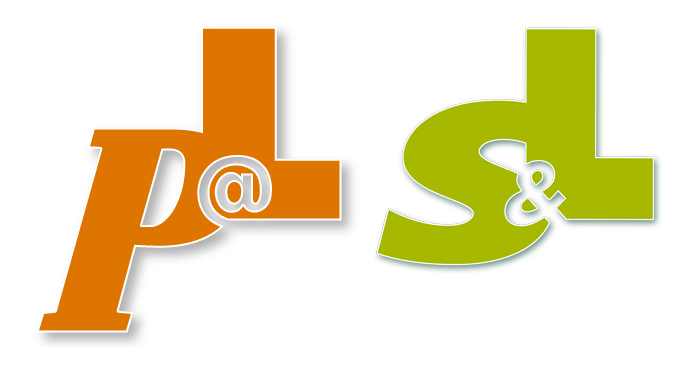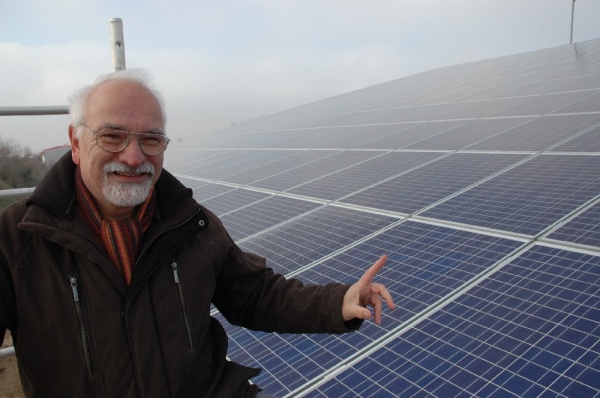Inspect First - Then Refurbish
In recent years, the number of artificial pitches used to practise sports has continued to increase, largely replacing old surfaces such as ...


YOUR FORUM FOR PLAY, SPORTS UND LEISURE AREAS

To begin at the beginning: the club started out with a huge bill for drinking water. In 2003 the TSV had to pay almost 12,000 Euros for some 7.400 m3 of the valuable wet stuff. The main consumption was for watering the club's two lawns, which was necessary because of the hot summer. This was a cause of great concern to the managing committee and in particular to its current Chairman, Hans Werner Dexheimer. The retired banker was accustomed in his work to regard figures as facts. As a specialist in accounting he scrutinised the expenses column of the club's financial statement and began an offensive for the conservation of energy and resources.
The first step was to disconnect the lawn watering system from the drinking water system. Geologists were asked whether there might be a suitable groundwater artery in the dry Rheinhessen area. The most the geologists were prepared to say was "possibly". An experienced well driller from the Siegerland searched the sports centre with a dowsing rod and was successful. He guaranteed to the club, that, by drilling a 30 meter deep drill hole, he could build a well which would deliver two cubic meters of water per hour. This encouraged the committee to invest heavily in the drilling of two wells and the construction of six storage tanks each capable of storing 60 m3 of water. Today the water storage tanks are filled by the well, together with rainwater from the roofs of the athletes’ hostel and an agricultural hangar, as well as from the drainage system beneath the lawns. This has made the system for watering the lawn almost self-sustaining. Only very rarely in very hot summers must the groundsmen use additional water from the drinking water system to keep the grass green. Generally there is sufficient water from the storage tanks to dampen the Astro turf before use to make it more comfortable to play on. In 2010 only 1,700 Euros had to be spent on the consumption of drinking water in the athletes’ hostel and a flat - a good sum, considering that every week about 300 football players use the recently renovated showers.
The next step was an ecology check on the accounting programme. On behalf of the Rhineland-Palatinate State Sports Association an engineer from the University of Applied Science Bingen carried out an inspection of the heating and plumbing, as well as of the insulation of the TSV athletes' hostel. This resulted in a plan for comprehensive refurbishment, which was implemented in collaboration with the locally-based energy consultant, Peter Kleißer.
Now the new heating system in the cellar of the athletes’ hostel proudly bears the name Agro Fire. Instead of smelling of fuel oil, the air is pleasantly scented with wood shavings. The central heating boiler is no longer oil-fired, but uses renewable raw materials, known as wood pellets. Wood pellets are usually made of compressed wood shavings and sawdust, but other types of energy-producing plants can be used in their production. The wood pellet heating system is supplemented by solar panels on the roof. Three giant hot water storage tanks, capable of storing 2,000 litres store the supply of hot water for showering and heating. Only when the solar energy is used up does the wood pellet heating system switch on automatically.
The roof of the 25 year old athletes' hostel has been re-insulated and a thorough refurbishment of the washrooms has meant that the water for the showers and toilets, too, is supplied by water saving technology. New refrigerators have replaced large, old refrigerators, in order to save on expensive electricity.
In the course of the refurbishment programme Hans Werner Dexheimer has become an energy bargain hunter. All data concerning energy are audited monthly. The major consumers of electricity like refrigerators and floodlights are constantly monitored. In the management of the club alongside updating the technology he also emphasises sustainability. He has made the coaches undertake to save energy when using the club's resources: “Switch off the lights, close windows and doors and do not forget to turn down the heating” is the motto for everyone. So that the appeal does not fade out of everyone's consciousness, two people have been appointed to see that energy is not wasted by electricity and water being allowed to run unused. "I cannot be everywhere and therefore we need someone who checks regularly and lets the coaches know when the floodlight system has been switched on, although no training or playing is going on. We think it is important that we also set a good example to our young people in protecting the climate and natural resources.
Good fortune, good relations with the commune and entrepreneurial farsightedness came to the aid of TSV Zornheim in the laborious and costly process of climate-friendly refurbishment. An exchange of real estate provided the club with some capital. This alone, however, was not enough. Just at the right moment, the Mainz-Bingen Administrative District launched a generous voluntary programme, from which the club was awarded exactly 50,000 EUR for the acquisition of the wood pellet heating system.
This wood pellet heating system realised major cost savings for the TSV. In 2003 3,300 Euros were spent for exactly 9,000 litres of fuel oil, whereas in 2010 the wood pellets cost just 2,400 Euro; the pellets therefore have proved themselves the more efficient heating option. In times of high oil prices the TSV had to pay over 5,000 Euros for the fossil fuel. The wood pellets have brought a considerable amount of cost certainty for the club, since the reference price does not vary greatly and five suppliers are already in competition with each other in the area;
The TSV energy savers hope that, in the future, they will be able to make further cost reductions in heating buildings and water, as is already happening in the wine region around Zornheim. The wood pellet heating system has a solid fuel stove, in which tests have been undertaken to burn dried pomace. Pomace is the residue from pressing the grapes in wine production, which along with wood pellets could create an eco-friendly waste disposal chain. Rheinhessen is an area poor in woods and pomace pellets would be used without needing to transport them far, thus saving transport costs. Obtaining inexpensive fuel from the neighbouring wine-growers is a win-win situation, which gives wood pellet fan and club organiser, Dexheimer obvious pleasure.
A true win-win relationship exists also between TSV and the Zornheim commune. On an unused piece of the club site the TSV erected an agricultural hangar, which is on long-term lease to the commune as a timber yard. Of course the hangar has a single-pitch roof, which is used for a 450 m2 solar thermal system supplying over 72 KW of energy. In ice-cold conditions at the end of 2010 the solar panels were installed on the roof, so that the solar compensation for electricity fed back into the grid for a buyback price would flow into the club accounts in full. It was possible to share the costs for the necessary power supply lines with two farmers who have built similar hangar projects for the use of solar energy. With this system the TSV will generate many times more energy than it consumes for its own use.
The wood pellet heating system also has developed into a source of income. A nursery school is being built in the immediate neighbourhood and it is planned that it will be supplied with heating energy by the TSV via thermal conduction. During the day the nursery school will be heated by renewable energy and in the afternoons and evenings, when the TSV Sports club opens up, there will be heating and hot water for the sportsmen and women.
Thus, resource and climate conservation pays off for the TSV Zornheim in many respects: as a source for cost savings and as a revenue-earner to support the range of sporting activities. The total heating requirement of the sports facilities now comes from sources of renewable energy, a total of 22 tonnes of CO2 are saved each year, calculates Peter Kleißer. In 2011 when the solar thermal system on the hangar roof is put into operation, TSV will cease to be a consumer of energy and will become a major supplier of CO2-free electricity.
There has already been official recognition for the TSV club's efforts in environmental protection. In the "Climate Protection in the Sports Club" competition organised by the German Olympic Sports Federation (DOSB) the Zornheim club was placed second out of 80 competitors from all over the Federal Republic. The Mainz-Bingen Administrative District rewarded the TSV club's commitment with 3rd place in the award of a prize for climate protection for the commendable efforts of clubs and communal organisations. This was reported in detail by the local press.
TSV Zornheim at a glance:
The TSV Zornheim club concentrates on a wide range of sports and possesses its own spacious open-air grounds with two lawns, an Astro turf pitch, a modern athletics track and a beach volleyball pitch. With 550 members (of whom 220 are active members) the football section is the largest division. The first men's team plays in the Regional League and is fortunate to play many derbies with teams from Rheinhessen and is currently in 4th place on the league table. From the Juniors’ to the Senior Men's there are 12 teams active. The second largest section is the 430 gymnasts and those who take part in gymnastics. Table tennis (about 90 members), Walking/Nordic Walking (a good 60 members), Athletics (about 50 members), Badminton and Volleyball (each a good 20 members) are the other sections. In total of the 1220 TSV members 550 women and 670 men are active sports participants. 450 members are under 18 years of age.
Further information on the topic of eco-friendly sports clubs:
TSV Zornheim 1895 e.V., Hahnheimer Straße 32, 55270 Zornheim
Contact: Hans Werner Dexheimer (Chairman), Telephone: 06136-44753, E-Mail: wernerdexheimer@web.de, www.tsv-zornheim.de
Bernd-Olaf Hagedorn, DOSB-Press Release No. 25 of 21.06.2011
Photos: